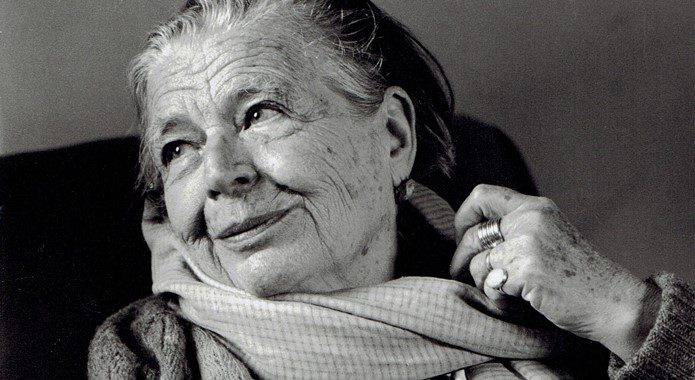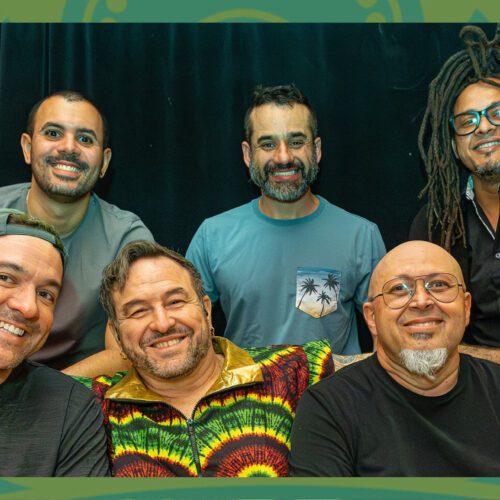Additional Information
Yourcenar, une île de passions is the next Quebec opera to be created. On July 28 and 30 in Quebec City, and on August 4 and 6 in Montréal, local audiences will have the chance to experience an intimate view of the life of the great writer Marguerite Yourcenar (1903-1987), author of, among other things, the masterpiece Mémoires d’Hadrien, one of the great novels of the 20th century. With a libretto by Hélène Dorion and the late Marie-Claire Blais, composer Éric Champagne has set out to breathe musical life and psycho-emotional transcendence into the respectful, yet very intimate look at the unique life of this extraordinary woman. Pan M 360 spoke with Éric Champagne to better anticipate what the audience will see and hear.
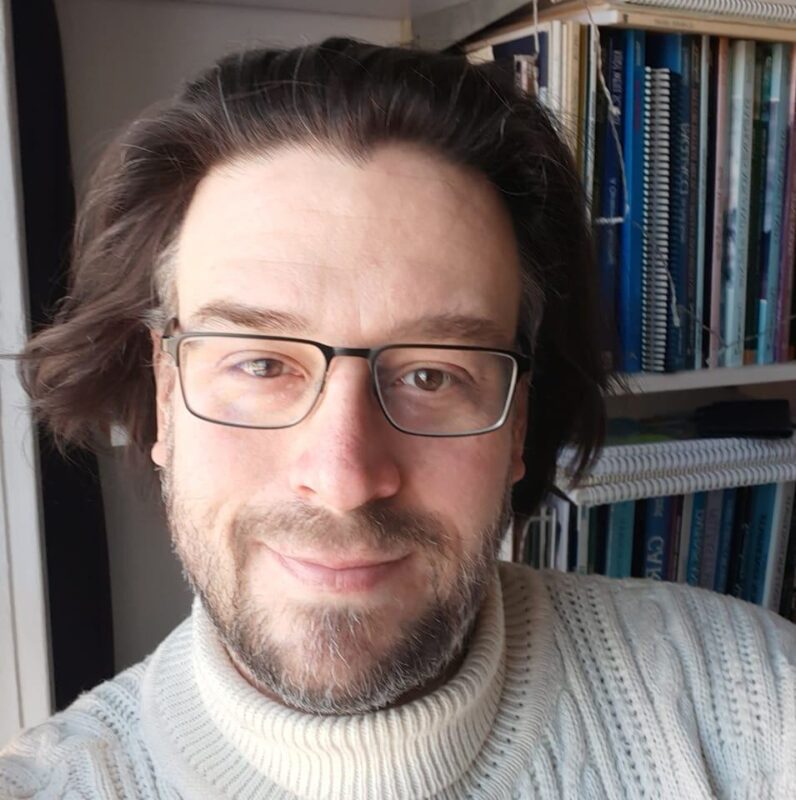
Pan M 360: With just a few days to go before the opera’s premiere, how do you feel about it?
Éric Champagne: I was calmer at the beginning of the week, but as the days go by, a little anxiety comes up, I must say. But nothing threatening. I am surrounded by an extraordinary team. I am particularly excited about the work of director Angela Konrad. She fascinates me! She was very discreet at the beginning of the process, but now she is the absolute master of the project and I feel that she will bring it to a successful conclusion. And what pleases me most is that she knows how to read music. She is able to say to the singers ‘here, at bar no. such and such, on the D major chord, you should do this…’. Wow! How many directors can do that in opera? What it also means is that she understands my intentions, and the singers feel confident because she speaks their language. Honestly, it’s great.
Pan M 360: How well did you know Marguerite Yourcenar before you started writing?
Éric Champagne: I knew Mémoires d’Hadrien quite well, which I had read several times. It’s one of my favorite books. But when it came to her personal biography, with the exception of the main points such as her entry into the Académie française as the first woman accepted, I knew almost nothing. Obviously, the project forced me to delve into her intimate world and her personal dramas.
Pan M 360: Were you touched by any specific points?
Éric Champagne: Yes, I found great resonance with some of my own concerns, that is, the difficulty of reconciling creative and sentimental life. For her, it was a daily struggle, rarely won. She either immersed herself in her creation and neglected her love life, or on the contrary, she tried to nourish her love life but her work suffered. I also find this reconciliation difficult.
Pan M 360: What do you think was wrong? Why couldn’t she do it?
Éric Champagne: As we sometimes say, she wanted it all. When she had a creative impulse, she plunged into it completely, without half measures, at the risk of major collateral damage. She lived life to the full, always in extremes, unable to sit somewhere in the middle and balance things out.
Pan M 360: How is the opera cut up? On which focal point is it concentrated?
Éric Champagne: The opera is divided into two parts that deal with the fundamental intimate relationships she had in her life: the one with Grace Frick, the main one, the one that occupied most of her life, and the one at the end of her life with Jerry Wilson. There are therefore two acts, the first beginning at the time of Grace’s death and during which numerous flashbacks will be used to illustrate the evolution of this relationship, echoes of Marguerite’s youth, her European wanderings, etc. Then the second act, in linear temporality, deals with Yourcenar’s last years, spent at the side of her young assistant, also her companion. A tumultuous relationship, that one.
Pan M 360: What guided you in finding the musical voice of the work? What thematic, ideological or other pivot did you base the score on?
Éric Champagne: What got me started was an anecdote from her biography. Yourcenar’s real name is Crayencour. From her birth name, she created an almost perfect anagram with Yourcenar (the C is missing). It amused me to think that she had played with her name to create a personality of her own, an ‘other’ identity. From there, I had the idea of playing with the notes as with the anagram. A bit like the composers of the Second Viennese School who inserted hidden dedications thanks to a system of notes associated with letters, I created a scale-alphabet that allowed me to develop motifs associated with Yourcenar, or Crayencour, and then others linked to the other characters of the opera. I felt a link with Marguerite because she liked to play with letters and words, a bit like I did with notes.
Pan M 360: Is the final score more tonal or atonal?
Éric Champagne: It’s particular because it’s ultimately a consonant opera but with few tonal episodes. There is consonance and dissonance, but not in a fixed tonal structure. I also find that it works well because the universe of the work is, in my opinion, very Proustian. We dive into very fine psychology, which allows for a lot of introspection and musical subtleties. In the end, it’s quite hushed and melancholic.
Pan M 360: The ensemble Les Violons du Roy will be in the orchestra pit. What orchestration challenges did this present to you?
Éric Champagne: The main advantage is that I could use the entire orchestra, in tuttis, without fear of overwhelming the singers! With a chamber orchestra like Les Violons, I was able to use the entire palette without fear. The disadvantage is that I have a symphonic mindset in general. There were times when I thought ”here, I’d like to have four horns! ”. So I had to limit myself but without too much difficulty. I felt a bit like Benjamin Britten when writing his fabulous chamber operas. The template is more or less the same, and so is the duration (about 2 hours). Besides, the subject matter was perfectly suited to this reduced format, as I said earlier. Maybe with another subject, it would have been problematic, but not here.
Pan M 360: Were there any particular difficulties in creating the connection with the booklet?Éric Champagne: No, not really. There was a bit of evolution of course, and some adjustments, but otherwise, everything went very well. I discovered that Marie-Claire had a great opera culture! I wasn’t expecting it, I must admit. With her leather look, I imagined that she listened to Marjo or Gerry Boulet (maybe she did too), but I discovered a woman who could tell me about such and such a production of La Traviata in 1979 in Paris, with such and such a director! We connected well. For Hélène, it was not a surprise because I already know her and I know that she likes opera. I would say that at one point when I suggested doing a trio, I saw the reflex of the women of the theatre coming out. They started by saying “three characters speaking at the same time? But how will we understand?’’ To which the composer obviously replied, “In opera, it’s not a problem. The music does the job!’’ But, in general, it was easy and pleasant.
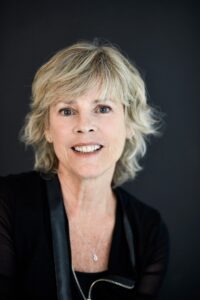
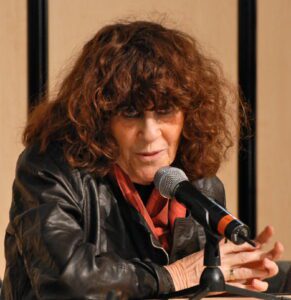
Pan M 360: What are your impressions of the cast?
Éric Champagne: Oh, the singers are fantastic! Everyone is hyper-involved. Stéphanie Pothier, who plays Marguerite, is immersed in the character. She read and reread biographies, and immersed herself in everything she could to understand her psychology perfectly. She knows the role by heart, and works tirelessly because it is an athletic role that she is about to create on stage. She is called upon for almost the entire two hours of the programme. Kimy McLaren as Grace is equally admirable. She dug up a biography of this lady (I didn’t even know it existed!) and drank from it too. It’s heartwarming to see this kind of involvement and to work with artists of this caliber.
Pan M 360: We can feel your enthusiasm. Are you thinking of writing other operas now? What subjects would interest you?
Éric Champagne: It’s funny because I recently made a list of opera subjects that I would like to do one day. Of course, the first thing I realized was that I won’t have enough time in my life to do everything! But the thing that also came out was the fact that I would like to bring to the opera stage subjects that are rarely treated in this medium. For example, fantasy, or detective stories. I sometimes wonder why there is no opera that does science fiction or horror? Why is there no opera based on an Agatha Christie story? It is said that cinema replaced opera in the early 20th century. But films have dealt with all these subjects, and opera has not. Maybe it’s time to take that step, to dare to tackle these kinds of subjects. I’m a Hitchcock fan and I can think of two or three titles that would make excellent operas. I would also like to see our Quebec literary and theatrical works explored more deeply so that they can also be made into operas. There’s a ton of good material.
Pan M 360: May the opera gods hear you and be with you!
Cast and crew :
MARGUERITE: Stéphanie Pothier
GRACE: Kimy McLaren
JERRY: Hugo Laporte
DANIEL: Jean-Michel Richer
A CAPTAIN: Pierre Rancourt
A SINGER: Suzanne Taffot
CONDUCTOR: Dina Gilbert
DIRECTOR: Angela Konrad
COMPOSER: Éric Champagne
LIBRETTISTS: Hélène Dorion & Marie-Claire Blais
SETTINGS: Anick La Bissonnière
COSTUMES: Pierre-Guy Lapointe
LIGHTING: Sonoyo Nischikawa
VIDEO: Alexandre Desjardins
COPRODUCTION: Opéra de Montréal / Festival d’opéra de Québec / Les Violons du Roy
In French with French and English surtitles
Running time:
Part 1: 1 hour
Intermission: 20 minutes
Part 2: 55 minutes
